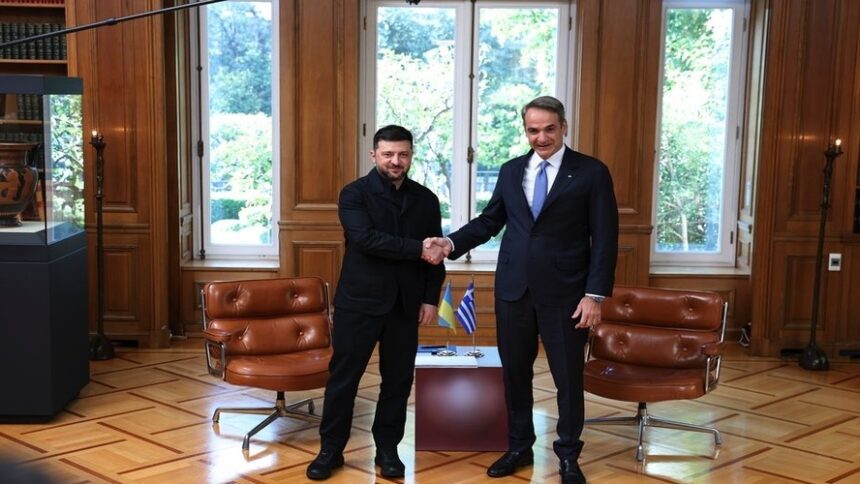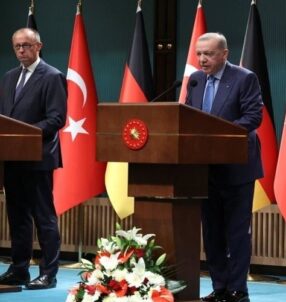Greece and Ukraine have agreed to co-produce unmanned surface vessels, or USVs, at Greek shipyards in a move officials describe as a major outcome of Sunday’s meeting between Greek Prime Minister Kyriakos Mitsotakis and Ukrainian President Volodymyr Zelenskyy.
According to well-informed sources cited by Kathimerini, the agreement will supply both the Ukrainian and Greek armed forces and establish a new production line at shipyards capable of building advanced unmanned platforms.
Part of the output will be absorbed by Ukraine’s military, while the rest will strengthen Greece’s arsenal. Greek companies involved in the program will provide electronic systems, optical equipment, sensors, and, if required, explosive material. Ukraine currently produces 15 types of USVs, and the joint model is expected to be an upgraded version of systems already tested on Ukrainian battlefields.
Athens and Kyiv have also discussed expanding cooperation into unmanned underwater vehicles if the surface-vessel program proceeds. Ukrainian defense technology is described as highly dynamic, with operational tactics updated roughly every seven days to counter rapid Russian advances in airborne drones and other unmanned systems.
For Greece, officials cite three main advantages in the partnership. First, the program gives Athens access to “technology tested in real conditions with proven results,” as Ukraine has used unmanned platforms and missile batteries to restrict the Russian fleet in the Black Sea. Second, it accelerates the adoption of innovative Greek technology in a field experiencing intense global competition. And third, it helps “close the gap” with Turkey, which introduced its first USV in 2021 and continues to expand its fleet.
Funding is already secured through Greece’s Long-Term Defense Procurement Plan for 2025-2036. The two countries will also seek support through the EU’s SAFE regulation loans, since Ukraine qualifies as an eligible third country for low-cost financing that promotes co-production of weapons with EU member-states.
In the coming period, a Greek military delegation and representatives of the shipyard expected to host the line will travel to Ukraine to advance implementation. The cooperation appeared in a brief seven-point joint statement, noting that the two sides agreed to deepen defense ties focused on maritime security, including “cooperation on the development and use of unmanned surface vessels.” The deal followed months of confidential consultations and high-level videoconferences.
Source: Ekathimerini.com















Leave a comment